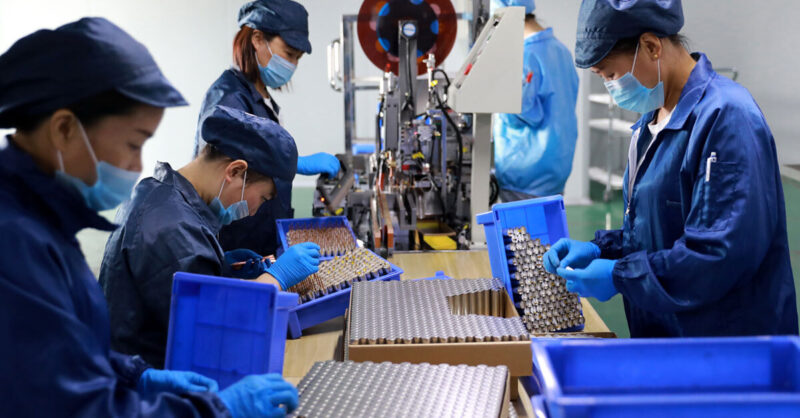Locomotive Starter Battery: Powering Your Train with Reliability
Locomotive starter batteries play a crucial role in the operation of trains. These batteries are responsible for providing the initial power necessary to start the locomotive’s engine. Without a reliable starter battery, trains would not be able to move efficiently and effectively. In this article, we will discuss the importance of locomotive starter batteries, how they work, and the various types of batteries available.
The Importance of Locomotive Starter Batteries
Locomotive starter batteries are an essential component of any train. They provide the initial power required to start the engine, which then powers the entire train. Without a reliable starter battery, trains would not be able to start and run efficiently. The battery also helps to keep the engine running smoothly by providing power to the electrical system when the engine is not running.
How Locomotive Starter Batteries Work
Locomotive starter batteries work by converting chemical energy into electrical energy. They are made up of cells that contain plates made of lead and lead oxide immersed in an electrolyte solution of sulfuric acid and water. When the battery is charged, the lead plates become coated with lead sulfate, which is a form of chemical energy. When the battery is discharged, the lead sulfate is converted back into lead and lead oxide, releasing electrical energy.
Types of Locomotive Starter Batteries
There are several types of locomotive starter batteries available, each with its own unique characteristics and advantages. The most common type of starter battery is the lead-acid battery, which is known for its affordability, reliability, and ability to deliver high bursts of power. Another popular type is the lithium-ion battery, which offers a longer lifespan and faster charging times than lead-acid batteries.

Choosing the Right Locomotive Starter Battery
When choosing a locomotive starter battery, it is important to consider several factors, including the size and voltage of the battery, the type of charger required, and the operating conditions of the train. Additionally, the battery’s capacity should be carefully considered to ensure that it can provide enough power to start the engine and run the train efficiently.
In conclusion, locomotive starter batteries play a vital role in the operation of trains. They provide the initial power required to start the engine, which then powers the entire train. When choosing a starter battery, it is important to consider several factors, including the type of battery, its capacity, and the operating conditions of the train. With a reliable starter battery, trains can run efficiently and effectively for many years to come.
-
 Lithium Iron Phosphate (LiFePO4) batteries are gaining popularity in various industries due to their unique characteristics. These batteries are widely used in electric vehicles, renewable energy storage systems, and emergency power backup systems. In this article, we will discuss the advantages and applications of Lithium Iron Phosphate Battery Packs. Advantages of Lithium Iron Phosphate Battery Pack 1. High...En savoir plus
Lithium Iron Phosphate (LiFePO4) batteries are gaining popularity in various industries due to their unique characteristics. These batteries are widely used in electric vehicles, renewable energy storage systems, and emergency power backup systems. In this article, we will discuss the advantages and applications of Lithium Iron Phosphate Battery Packs. Advantages of Lithium Iron Phosphate Battery Pack 1. High...En savoir plus -
 In recent years, the concept of smart grids has gained significant attention in the field of energy management. A smart grid is an advanced electrical grid that utilizes digital technology to efficiently manage the generation, distribution, and consumption of electricity. One crucial component of smart grids is the use of lithium batteries, which offer several advantages over traditional lead-acid batteries....En savoir plus
In recent years, the concept of smart grids has gained significant attention in the field of energy management. A smart grid is an advanced electrical grid that utilizes digital technology to efficiently manage the generation, distribution, and consumption of electricity. One crucial component of smart grids is the use of lithium batteries, which offer several advantages over traditional lead-acid batteries....En savoir plus -
 Alors que les vélos et scooters électriques continuent de gagner en popularité en tant que mode de transport pratique et respectueux de l’environnement, l’efficacité et la longévité de leurs batteries deviennent des facteurs cruciaux pour les cyclistes. Avec les progrès technologiques, les fabricants améliorent constamment les performances des batteries de vélos électriques et de scooters, les rendant plus efficaces et plus durables. Dans cet article, nous explorerons l'importance d'un...En savoir plus
Alors que les vélos et scooters électriques continuent de gagner en popularité en tant que mode de transport pratique et respectueux de l’environnement, l’efficacité et la longévité de leurs batteries deviennent des facteurs cruciaux pour les cyclistes. Avec les progrès technologiques, les fabricants améliorent constamment les performances des batteries de vélos électriques et de scooters, les rendant plus efficaces et plus durables. Dans cet article, nous explorerons l'importance d'un...En savoir plus -
 Battery sulfation is a common problem that occurs in lead-acid batteries, which are commonly used in various applications such as cars, boats, motorcycles, and uninterruptible power supplies. It is a process in which lead sulfate crystals form on the battery plates, reducing its capacity and overall performance. Lead-acid batteries consist of positive and negative plates submerged in an electrolyte...En savoir plus
Battery sulfation is a common problem that occurs in lead-acid batteries, which are commonly used in various applications such as cars, boats, motorcycles, and uninterruptible power supplies. It is a process in which lead sulfate crystals form on the battery plates, reducing its capacity and overall performance. Lead-acid batteries consist of positive and negative plates submerged in an electrolyte...En savoir plus -
 Introduction: The 12V 100Ah Lithium LiFePO4 Battery is an innovative and technologically advanced battery that is designed for long-lasting power on the go. This battery is made of lithium iron phosphate, which is a type of rechargeable battery that has a longer lifespan and is more stable than conventional lead-acid batteries. Features: The 12V 100Ah Lithium LiFePO4 Battery has...En savoir plus
Introduction: The 12V 100Ah Lithium LiFePO4 Battery is an innovative and technologically advanced battery that is designed for long-lasting power on the go. This battery is made of lithium iron phosphate, which is a type of rechargeable battery that has a longer lifespan and is more stable than conventional lead-acid batteries. Features: The 12V 100Ah Lithium LiFePO4 Battery has...En savoir plus -
 Introduction: In recent years, the world has witnessed a growing demand for electric vehicles as a means to reduce carbon emissions and combat climate change. Responding to this need, an innovative electric dirt bike powered by advanced lithium battery technology has emerged as a game-changer in the transportation industry. This article aims to explore the features and benefits of this...En savoir plus
Introduction: In recent years, the world has witnessed a growing demand for electric vehicles as a means to reduce carbon emissions and combat climate change. Responding to this need, an innovative electric dirt bike powered by advanced lithium battery technology has emerged as a game-changer in the transportation industry. This article aims to explore the features and benefits of this...En savoir plus -
 Lithium batteries are an essential component of many modern devices, such as cell phones, laptops, and electric cars. However, they can be greatly affected by cold weather. Cold temperatures can cause the lithium ions inside the battery to move more slowly, reducing the battery\'s capacity and overall performance. Therefore, it is essential to know how to keep lithium batteries warm...En savoir plus
Lithium batteries are an essential component of many modern devices, such as cell phones, laptops, and electric cars. However, they can be greatly affected by cold weather. Cold temperatures can cause the lithium ions inside the battery to move more slowly, reducing the battery\'s capacity and overall performance. Therefore, it is essential to know how to keep lithium batteries warm...En savoir plus

